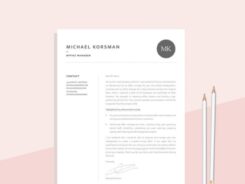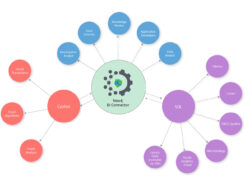We all are equally affected by the COVID-19 pandemic, and there is barely anything that we can do other than taking precautions and keeping ourselves safe. Work from home sounds good, but it can be a challenge to maintain productivity for the employees and to track performance for the employer. In this situation, the management team gets tough on how to continue with the successful functioning of the business. Here’s how some CEOs maintain work from home productivity?
Let’s have a look.
Willie Greer, founder of The Product Analyst

Stay away from the bed and couch. A dedicated workspace should be established, but it should be away from the bed o
r the couch. It’s pretty tempting to take a “short” break and lay down for a while, and that’s when you waste a lot of time because you don’t feel like getting up. I’ve had a lot of “5-minute breaks” that stretched to 30 minutes when my desk was near my couch.
Go hardcore and turn off your phone’s Wi-FI. Many people are suggesting tons of apps help control screen time and social media use, but I still find it a waste of time. Instead of following the rules, I find my way around them so it’s pretty useless to me. If you REALLY want to avoid distractions, my advice is to go hardcore and turn off your phone’s Wi-Fi. That way, you won’t hear any notification beeps from any app. If you use anything for work, keep the app open on your desktop.
Mechanical keyboards increase your productivity. If your job involves a lot of typing (like mine), I suggest you get a mechanical keyboard. It will have that tactile feel on every key, and the spacing allows you to tell each key apart from each other. Fewer typos, faster words-per-minute rate, and the satisfying clicking sound will hit the right spots
Kristine Pachuta CEO at AlltimePower

My biggest tip is to not be afraid to take breaks during the day and to set a stopping time. It would be easy to work many continuous hours while working from home as workloads have increased during this time of COVID-19. Working and scheduling meetings in 25 and 50-minute blocks, instead of 30 and 1 hour-long blocks, allows some space to breathe during the day. Also, I found that I kept returning to my computer after my normal working hours. This isn’t something I did previously after I left the office. I had to set a firm rule for myself to avoid working late every night. Most importantly, if you set these rules and then violate them, be gentle with yourself. Having empathy for both yourself and your co-workers during these uncertain times is key.
Dror Liebenthal, CEO of Bold

There’s a lot of chatter these days on best practices for working remotely, such as setting up a schedule and getting ready in the morning like you’re going to an office. I’d like to focus on best practices on how to keep yourself motivated and happy while working from home. We’re all going to be working from home for a while, so here is where I think your energy should be focused.
Allow yourself some freedom during work hours. I’m not going to tell you to work less because you shouldn’t be, but you can work from home and enjoy yourself a bit. Think about making yourself a nice breakfast in the morning or walking your dog during lunch. Within the work schedule, you create, allow time for you to take time for you.
Set personal goals and hold yourself accountable, the only person you’re going to let down is yourself. If you’ve had something you’ve wanted to start doing, do it now, you finally have time to do it. An example might be, stretch every morning or build a birdhouse out of the wood that’s been in your garage for years.
Lastly, don’t forget to socialize. Life can get consumed by work when it’s at home with you all time. Most of us aren’t used to keeping work at home with us. Don’t forget to take the time to connect with people outside of “the office”. For example, Zoom trivia with family and friends. Don’t let work consume your life, we’re at home living and working.
Alex Grande CEO of Recognize Services Inc

Having the right digital tools to help you do your job is essential when working from home. Not being shy to try new tools and keep pushing an efficient process. Using Geekbot in Slack, for instance, helps me know what my direct reports are doing every day. I can ask specific questions for sales folks or customer success. Online tools such as Trello, Geekbot, MSTeams, or Slack will help not only be efficient working from home but being an efficient company too.
Inside the home itself, defining with family members when work time occurs. For me, if the door is closed to the office, please do not disturb it.If you have any rug rats in the home, building habits early on to stay quiet or go outside during important phone calls is critical.
Having a personal large whiteboard really helps brainstorm. Just because you are working from home, doesn’t mean you should have the benefits of an office. Buy the large whiteboard, get a Herman Miller chair, and that electric sit/stand desk. If you are a cash-conscious CEO like myself, go with a used Herman Miller chair.
For video conferencing, we made the decision on our team to not share the video. We are more likely to share a screen. When you are in an office working with someone, you aren’t often staring at each other but presentation or a computer program. Not sharing video helps people retain cognitive and social energy on calls. People are less concerned about how they look and are more natural. However, as the CEO you need to be always ready to share a video when on business calls. That’s why as the CEO I have nice art on the walls behind my computer, nice lighting, and I try to always look professional going into any external conference call.
Lori Cheek, Founder, and CEO of Cheekd

1). MORNING RITUALS: As soon as I wake up, I start the coffee maker then I roll out my yoga mat and do 30 pushups, 100 sit-ups, and 3 rounds of one-minute planks followed by a quick stretch. It takes less than 20 minutes and not only does it get my heart pumping and immediately wake me up, it gives me a calm start to the day! Then I grab my coffee, crack open my laptop, and begin the entrepreneurial grind already 200 calories lighter!
2). GET ORGANIZED (DAILY)!
When I get to my desk, I Organize My Workspace. Having a clean workspace helps me focus and feel structured. After I organize everything, I settle in with a cup of coffee and try to relax for 15 minutes before diving into the hustle. Then, I prioritize my day’s to-do list and map out the rest of my day!
3). GET OFF SOCIAL MEDIA:
One of my favorite productivity hacks comes with the help of an app called Stay Focused When working from home, Facebook and Twitter can be a major distraction. StayFocusd helps avoid these distractions by restricting the amount of time you can spend on them. The Google Chrome extension lets you set specific time restrictions on certain websites with a 10-minute default option. Once your time has been used up, the sites you have selected to block can’t be accessed for the remainder of the day.
Neil Sheth Founder of Bubbl digital

After nearly 2 months of lockdown, I can say we’ve finally found a good rhythm with our team communication. There are four areas that have helped to replace the in-person interaction and thereby maintain productivity levels:
- A place to talk – we schedule in two 30 minute virtual team meetings per week (choose however many you need depending on team size) to talk about the plan, discuss issues or new ideas.
- Quick communication – we’re big fans of slack where we can set up every project as a separate channel helping us to keep conversations siloed and get help quickly
- Project management (slower communication) – luckily we had moved to a project management system just before the lockdown was implemented. But we’ve found our team has taken to it well where project tasks are well planned out and specific conversations that are project-based and don’t necessarily require a quick response can be kept there.
- Having fun – it’s important to maintain a positive team culture and we’ve found having a few team virtual socials every month helps to keep people engaged. In the last session, we ran a quiz and we’re planning a happy hour next. That will be fun!
I am definitely more confident about us delivering clients work with a remote team so very likely things will change for us as the lockdown is lifted.
Terence R. Traut is the CEO of Entelechy

I have two sets of tips for your readers: 1) General working from home tips, and 2) Crisis leadership tips for managers now working remotely.
General Working from Home Tips from Terry Traut, Entelechy CEO
I’ve been working from home for 25 years, first as an individual, and then, as my company grew, as CEO of a company of virtual employees and contractors. But, I used to work in a large corporate environment before that. I’ve found that the key to working from home is to create bite-sized tasks – things that you can attach timelines to and demonstrate results from your effort. Check things off as you complete them to show progress.
Be disciplined but flexible. Start work at a consistent time every day; get into a consistent routine. However, remember to take advantage of your flexibility. So, if it’s an especially nice morning, take a break and go for a walk in the woods.
I may get into trouble with this one but don’t separate work life from home life. It’s all just life. Instead of trying to force yourself to be productive when you’re not, or to relax when your mind’s whirling, just go with the flow. Don’t feel guilty for that time you got up at 3:00 am to document a brilliant thought. Likewise, don’t feel guilty for that morning walk in the woods. You’ll find yourself more productive AND happier. 🙂
Shower at least every other day.
Remote Crisis Leadership Tips from Terry Traut, Entelechy CEO
Managing during this crisis requires that leaders first step back and survey the landscape and see this as the unique moment it is. From there, leaders should follow these four steps:
- Provide a vision of opportunity: this is a time when we can build new and better things. What projects can the teamwork on remotely to advance the organization? How can you take care of customers during these challenging times? What will the company’s priorities be as we come on the other side of this?
- Reassure the team and each employee by understanding and helping them cope with their unique challenges. Reassuring your team is important, but during trying times, it’s the individual who most needs reassurance. Specifics matter. Asking how each team member is coping and knowing what each team member is dealing with is important.
- Be flexible. Team members will remember how they reacted. Once this crisis has moved on, people will soon forget the detail and the hardships, but they will never forget how you made them feel. Working different hours or a reduced work schedule may be the flexibility people need.
- Keep communicating. The same story is better than no story. If you don’t provide information, guidance, and direction — even if it’s the same information, guidance, and direction you provided last week — people tend to make up stories. (Look at the panic over toilet paper. When people aren’t clear on what to do, they tend to do what others are doing, even if it doesn’t make sense.)
Monica Eaton-Cardone Co-Founder and COO of Chargebacks911

My number one tip for staying productive while working from home is to be intentional about taking breaks throughout the day. Personally, I’ve always struggled with knowing when it’time to rest, especially in the middle of a busy day.
Every morning I make a list of the big goals or tasks that I want to accomplish, and after each task, I also schedule a short break. I’ve found that working hard for a set amount of time and then rewarding myself with a break greatly improves my productivity. It may seem like a small thing, but crossing tasks off my list also gives me a sense of accomplishment and helps act as a motivator.
It’s important that you give yourself a rest from being in “work” mode. Rather than sitting at your workstation or browsing the internet, I suggest stepping away from your computer or workstation. A change of scenery always helps me feel rested and gives me the boost I need to get back to work. I enjoy taking a short walk, but it could also be doing yoga for 10 minutes, brewing a fresh cup of coffee, or throwing the ball for your dog in the backyard.
Zak Garcia, CMO of CBDCapitalGroup

When people are new to remote working, it can be hard to adjust to working and communicating effectively as a team. This is partly because most people have always worked within the paradigm of an office setting, being able to read body language, taking cues from subtle expressions, etc. When I built my first remote team of more than 5 people, I started to notice that some communications between team members got lost in translation. The way we overcame this was to focus on gratitude fueled communication and to take time each week to share our wins and our failures with each other. By sharing wins every week, people get recognition for the good work they are doing and remind those team members that might not interact directly with them often their value to the team. By sharing our failures or challenges from the week, we can enroll our team members in solutions and build cohesiveness. Learning to communicate effectively while working remotely is going to require intentionality and patience.
Additionally, I strongly suggest you hold a team call at least twice a week. Share a round of gratitude early in the week and wins/failures later in the week as a bookend. It helps people feel emotionally connected when you share gratitude together.
Georgette Pascale, Founder of Pascale Communications

- Find how you work best– the beauty of virtual working is its flexibility. Do you have the clearest head in the morning? Plan to tackle your biggest project before 10 am. Work better with music? Crank up the radio and get to work!
- Use software that works for you and your team– google suite apps have been key for the virtual collaboration on projects and keeping our team constantly connected
- Get face-to-face contact when you can– don’t underestimate the importance of a virtual facetime to connect with colleagues or clients
- Keep lines of communication open and accessible– whether it be through google hangout, a phone call, text, instant message, or even a private Facebook page like we have at Pascale, be clear that there’s always a way to connect
Ultimately, successful virtual work comes down to the company culture. When individuals are able to work when they feel most productive and in an environment where they feel most inspired, it is undeniably visible in the work they produce. Embrace the freedom that comes with virtual, listen to your colleagues, and continue to adapt in the ways that best fit your company.
Walt Capell President/Owner of Workers Compensation Shop

Get up and walk around periodically
Most leaders are used to moving around throughout the day. Create time to move to a different part of the house or go out for a walk around the block. This can be good for your physical and mental health. It also helps productivity too.
Create Routine
During your normal commute time, create some sort of time that is just for you and you only. If you have kids you are attempting to home school, this might be especially hard. Eat lunch at close to the same time each day, end work at around the same time each day. Whatever routine you have come up with, try as best you can to stick to it. This is the best way to maximize productivity.
Realize you will be mixing work and life more
Many people say that having a designated office or work station helps them distinguish work time from personal time, but during this current pandemic, this is nearly impossible. Business owners really don’t turn off work much anyways. If you just realize that when being forced to work from home, your work life is going to stumble over into your home life even more.
Golda, the Founder, and CEO of Leksi

I’ve been working from home for a couple of years now. These are the top 3 habits I rely on to keep me productive throughout my day.
- Reading boring contracts and documents are the worst. To help me get through it, I upload these documents to Leksi and listen to them during my walks or while I’m driving. Not only does this save me tons of time, but it has also helped me catch details that I would’ve missed while reading.
- I write my to-do list the night before. When I know that I have important things to do the next day, I’m more motivated to get started. There are a lot of distractions at home, and having a to-do list helps me stay focused and prioritize my activities.
- I’m an easily distracted person, so I do my best to keep my workspace clutter-free. People don’t realize that clutter – like a pile of papers – can rob you of mental energy and focus. Our brain can only focus on one thing at a time, and it often chooses the easiest thing to focus on; in this case, clutter. It only takes a few minutes to clean up the clutter, and the returns on focus and productivity are worth it.
Liz Grossman Kitoyi, Co-Founder and CEO of Baobab Consulting

I have worked remotely at home for the past 4 years in New York City. Here are some tips:
- Take a morning walk before you log on. This clears your head and makes you feel like you are “commuting”.
- Establish a workspace in your home, don’t make the entire home your office. It is important to be able to leave work outside of all common areas.
- Don’t leave work materials everywhere.
- Don’t work from bed, you want your bed to be a place of peace and calm, not work stress.5)Get dressed, staying in your pajamas will make you feel less productive.6)Use Zoom, Skype, or video calls to keep face to face interaction up as often as possible.
Sam Williamson, Founder of CBDiablo

The issue that most people have when working from home is that their expectations for productivity are too high – realistically you’re not going to be productive all day, especially if you have a busy household. So my number one tip for working from home productively is to focus on having productive work blocks, where you work in 2-hour sessions of intense focus and without distraction. These sessions will require a little preparation, as you’ll need to go to the bathroom, make coffee, etc. before you get stuck into the work. But even if you manage to have just one of these focused blocks throughout the day, you’ll get a lot done and you’ll be able to be a bit more relaxed with the rest of your time.
Jessica Rose, Chief Executive Officer of Copper H2O

When working from home, it can be easy to forget to take breaks and drink enough water in order to stay hydrated. Part of the problem is that our homes are often much smaller and confined than our workplaces, which means there is less space to move around. In addition, without co-workers to socialize with at the water cooler, it can be easier to fall into a pattern of working non-stop and forgetting to stay hydrated. Productivity while working from home can be supported by staying well hydrated throughout the day and taking short breaks every hour or so to move around a bit. I find that it is a great strategy to keep my favorite water bottle close at hand and continually drink from it throughout the day. When it gets empty, I take a small break to refill it, and when I get full, I take a bathroom break! The feedback loop is flawless and will keep you moving and staying well hydrated. This process keeps me hydrated while also ensuring I am getting small physical breaks to keep myself productive throughout the day.
Jared Grubka, Co-Founder, and COO of HouseStay

I work in the travel sector so COVID19 has been playing a big factor in day to day operations so it’s more important now than ever to keep up your efficiency while working from home.
What methods have worked for me?
- Sticking With Your Routine: This has been the most important factor in keeping the “ready to work” mindset. Waking up your normal time, working out, lunch, etc. This helps keep my body and mind on the same schedule even though I’m not physically able to go into the office or gym.
- Create Your WorkSpace: Even though working from home for some may seem like the perfect time to work from your bed or with your roommates, this can cause fatigue and even anxiety because the more you work from these areas you will start to feel like your working even when your not (the last thing you want is to be laying in bed at 1 am and feel the need to respond to emails). If possible set up space with a desk and few distractions so you can have that “Home Office” feel as this allows you to take a break and get away from work by going to another part of your home.
- Leverage Music and Playlists: Having good background music has always import for me while I work especially on more of intensive tasks, stations like Spotify, Pandora, etc. have been great for crafting play listings that keep me focused on the task at hand eliminating the additionals distractions I find at home.
- Stay In Touch With Colleagues: Just because your working from home doesn’t mean you can’t talk to other people within your company. Even though it’s the age of texting, picking up the phone or having quick daily zoom meetings ensure you keep the communication flowing within your team which I view as one of the biggest factors in maintaining your level of efficiency while working from home (individual and as a team).
Calloway Cook, CEO of Illuminate Labs Inc.

1) Take Short Walking Breaks Every Hour
You can only maintain concentration for so long, and going on a short walk is both good for mental health and proper oxygenation of the brain. Especially during the COVID-19 lockdown, being proactive about healthy practices like this will make a huge impact on your productivity. It’s hard for the first week, but once you get into a routine with it, the walks become second-nature.
2) Stop Working At 10 PM Latest
This sounds counterintuitive, but if you try to burn the candle on both ends and work late into the night, your mornings will be super unproductive. Many CEOs and entrepreneurs would be best suited to just stop working and even checking work email after 9 or 10 PM. Most business meetings tend to take place in the morning, so shutting off early and being rested for the meetings is the most productive choice.
Ken Eulo Founding Partner Smith & Eulo Law Firm

When working from home, I find I can be a productive leader with proper planning for the people I manage. One of the hardest things about leading a team from home is the management of tasks, but if you plan accordingly, you can be effective. I suggest leaders working from home to schedule employee tasks at least one week in advance, that way if any questions come up, an employee can address the issues before the tasks are due. I prefer to have a plan for the monthly goals of my team, which is divided into weekly goals, daily goals, and so on until the tasks are assigned to each individual team member. This way, each employee has a firm understanding of what is expected of them in the future and can plan accordingly. Proper planning can make or break your remote management strategy, as switching things up within a remote team is more difficult to do than when you are in an office environment. I also like to hold weekly videoconferences with my team, so we can address what was supposed to get done, what got done, and the plan for next week. This is also a great opportunity for team members to address any unresolved issues they have encountered since we last spoke.
Robert Moses, Founder, and CEO of The Corporate Connoisseur

Unprecedented times are challenging for all those involved. As the world continues to grapple with the recent pandemic, we are beginning to face a new normal and a reality that is different than anything we’ve ever seen. However, it is important in these trying times to continue to tackle the tasks and responsibilities ahead of us. As-such, although working from home for a prolonged period of time may be a new circumstance, it is one that is a new normal.
Remaining productive while working from home requires a reworking of our mindsets. For starters, it is extremely important to ensure that your own mental health and wellbeing is top of mind. This includes taking your previously allocated paid time off dates and utilizing your designated lunch hour. This will help to give you a breather and some time to reenergize during the day.
In addition, to increase your own productivity, it is important to create an atmosphere that is conducive to your most efficient output. Put more simply, you should create an environment where you are both relaxed and focused. As-such, I highly recommend removing any distractions and items which may call your attention unnecessarily. In addition, you may consider playing some white noise or music to help you relax and enter into a more focused zone.
Kevin Miller, founder, and CEO of The Word Counter

I use several methods to maximize productivity and minimize mistakes throughout my high-paced, busy workday. First, I acknowledge my limits, especially those I can’t control. Second, I separate what’s urgent from important. Tasks with upcoming deadlines should take priority. Third, I’ve learned to concentrate by avoiding distractions. I also work in big blocks of time. That means silencing my phone, closing my email, and focusing on the task at hand. In addition, the art of delegating tasks has helped me more than words can say. Without my staff, there’s no way I could get everything done day in and day out. Planning ahead is key. Without proper planning, it can be hard to execute complex tasks.
I manage my remote team by doing two things. First, we do daily standup meetings at 10 AM PST. During these meetings, we discuss what we did yesterday, what we are working on today, and talk through any issues we are experiencing. Second, we do all of our meetings via Zoom, which is a video conferencing tool, to keep each other accountable. Also, we have every task in Basecamp to keep things tracked and organized. Also, our organization has created a “Grow Your Craft” fund, where we give employees $1,000 to spend on an online course of their choice. The only requirement is that it has to connect to the functional work area that the employee is in right now. We currently have employees enrolled in courses doing Google Analytics, Google Adwords, SQL, Data Analysis, and more. It has been a huge hit across the company with 80% adoption so far. This is the perfect time to utilize online courses, and we are taking advantage of that opportunity.
Marc Falzon Founder and CEO of Falzon

Tip #1: Wearing office clothing (even while home) increases Cognitive function.
If most of your meetings are done over audio-only, you might be tempted to dress casually (if at all!) Over the first month of COVID-19 quarantine I was no exception. As time went it was harder for me to focus and get in the zone, and I had a suspicion my casual attire was part of the blame.
And as it turns out, the science reflects that. A 2016 Social Psychology study found that dress matters. They compared subjects dressed in formal wear compared to casual clothing. The finding? Dress impacted their hormone levels, cognitive function, and negotiation skills.
Tip #2: Boost Your Productivity with Hourly Breaks
While you’re at the office you’re likely used to taking frequent breaks to put out fires. For me, that changed dramatically when I started working from home. Suddenly I had long stretches of uninterrupted time to focus on one task. This usually results in extended periods of me frozen at workspace for stretches of six or more hours.
For your own productivity’s sake, don’t let this go unchecked. It’s well documented that frequent breaks increase productivity. It’s too easy as a CEO to become locked in one place too long.. The end result will be you taking the easy solution when a tough problem appears later in the day. This is known as “decision fatigue”, and it’s the nature default for people to shrug their shoulders when they get burned out. Tip #3: Don’t let your employees fall into isolation
As CEOs, it’s so easy to have a mile-high view that we lose track of moral on a day to day basis. With COVID-19, there’s likely a percentage of your employees who’ll start to feel discouraged during the lockdown. Part of keeping morale high might mean an extra allocation of your time spent connecting with your team members or encouraging your department heads to do the same. In my business, our employee’s reported work satisfaction increased by 23% after implementing a weekly “unplanned” check-in. Literally as simple as an out of the blue Zoom call.
Simonas Steponaitis Marketing Manager at Hosting Wiki

1. Don’t Mix Work and Personal Life:
Your concentrate will go in vain when someone from your family calls you during working hours to get your hands on a household chore. To prevent this situation, ask your family members not to disturb you in the working hours unless there’s something really important that needs your attention. It’s okay if your work and personal life mix for a little while. But, overdoing it will result in low productivity. Also, make a habit of getting all work-related questions out of your head once you leave your desk and resist the temptation to check your emails.
2. Don’t Depend on One Communication Channel:
Comprehending the demands of a complex task in a remote work environment can be a challenge that is compounded by an exchange of queries and information over email or IM tools. Using video calls instead can ease out this process because discussing things with a real person in real-time is always more effective. Besides, this gives you a chance to establish rapport with your colleagues. It’s a win-win!
3. Turn Off Unnecessary Notifications:
A typical workplace today is characterized by a constant buzz of desktop and smartphone notifications. Over time, checking every notification becomes a habit, which can distract us from the task at hand, break concentration, shift focus from urgent to trivial tasks. All of this, in turn, impacts productivity. Instant messages decrease performance and can deviate a person from their original goal. This is not to suggest that all notifications are trivial and must be removed. Just getting rid of sound and light alerts can do the trick, as this allows you to check your phone/device at your own convenience and without compromising on your work.
David Morneau Co-Founder & CEO of Inbeat

Here are my top tips on working productively from home:
- Create a dedicated space for your work. Make sure that this space is free of distraction, as much as it can be. This makes a clear spacial distinction between work and family.
- Draw a line in the sand. I end my workdays at 5 pm, and won’t touch my computer after, ensuring that business doesn’t blur with my personal time.
- Setup some stand-up (agile) mechanism to have your team and yourself report daily on the work that has been completed. We use a Slack bot that pings every member of the team daily, inquiring them about what they have done, and what they need to do (check out DailyBot).
- Automate anything you can. This advice is applicable all year round, but most of us now have more time to automate the small annoying things. Check IFTTT or Zapier, and find the little things such as starring an email to make it a task on your Todo list.
Jason Davis, CEO of Inspire360

I am working from home with two small children, so finding ways to be as productive as possible is a necessity. I have a strict schedule that my family knows about so it’s clear when my work starts in the morning and ends in the afternoon.
When I go into my office in the morning, it’s important for me to start with a meditation. I find that this helps tremendously with my ability to focus with a clear head for the day and therefore, makes me more productive.. I also make sure that I have everything I need already in my office including water, a snack, pens, and a small whiteboard.
After my meditation, I write down my to-do list for the day. This might sound like an obvious task, but often when my day starts I get bombarded by emails and Slacks from my employees trying to get answers to questions. Before I even turn on my computer, I take out a pen and notepad and write out the items that I absolutely have to get done that day. This helps me prioritize my projects and make sure nothing is forgotten in the busyness of the day.
Finally, I used to also waste a lot of time trying to decide what I wanted for lunch, but now I decide what I want the night before and schedule a delivery from a local restaurant for the next day. This cuts out a lot of hassle and helps keep me focused on the task at hand.
Yaron Been CEO of EcomXFactor

1)Planning my schedule the evening before.
I set 3 goals for tomorrow, make sure that these goals are revenue-creating goals.
Working from home gives me a lot more flow but If I don’t take forced breaks I become much less productive after lunchtime.
So this is why I also block time in my schedule for breaks.
2)Work with at least 2 screens, preferably 3.
This is an immediate productivity booster.
I do my work on the center monitor.
The left monitor is open with my calendar, email, tasks, etc
And the right monitor is an accessory monitor for researching the tasks that I’m currently doing
3)Eat a light lunch and consume most of the calories at dinner.
This is self-explanatory.
I take a shorter break for lunch and this way I”m able to stay in the flow of work.
Chris Kaiser Founder & CEO of Click A Tree

- Plan ahead. Plan your workday the evening before, so when you get out of bed in the morning you can jump right at the most important tasks.
- Morning mantra. Say a morning mantra while showering or dressing. It puts you in the right mood for a productive day.
- No distractions. I have my phone in flight mode until 10 am, and don’t turn on the internet until after lunch. If a text message would be urgent, it’d be a phone call. Nobody ever sent a text message to call the firefighters.
- Structure your day. Don’t start with emails – they are other people’s problems. Start with your own thoughts, maybe writing, creating a client proposal… whatever adds the most value to your business, or offers the highest ROI. (Yes, emails are okay if you e.g. work in customer service…)
- Rest. Knock off on time. Give yourself some rest, go outdoors, enjoy the sun, cook a healthy meal, call a friend… it’s important to balance work and time of well in order to stay productive.
Manon DeFelice, Founder, and CEO of Inkwell

- Take advantage of technology – We’re lucky to have tools that make it easier to connect with our colleagues even when we’re not in the office, use them. Along with resources to connect people, there are also resources to help keep us organized and healthy among other things.
- Take breaks – Been cranking on something and need a brain break before revisiting it? Take one!
- Be flexible – Taking on remote work often means you need some type of flexibility. So be flexible. If that means it’s easier for you to work on something early in the morning or later in the evening, do what works best for you and your team
Michael Alexis, CEO of Team Building

An important tip for working from home is to clean up regularly. When you go to an office, you usually spend at least 8 – 10 hours away from home each day, and sometimes “home” becomes just a place to sleep. When you work from home, you spend significantly more time there and your space will take ware and tear.
For example, you should do a five minute tidy-up each day, and a deep clean of the kitchen, bathroom, and bedding 1x per week. If you can keep your space clean, then it will help you stay productive, healthy, happy, and focused in your work environment.
Another tip for keeping your space clean is to just have less stuff. For example, I follow the “two dishes” rule, which means two plates, two bowls, two cups, and two sets of cutlery. If all you have is two of each item, your sink will never be quite full.
Neal Taparia Co-Founder of Solitaired

About four weeks ago, I started to feel stuck in my work, mostly because my personal world was blending with my business life. To mix things up, and stay productive, I started creating mini-challenges for myself. As an example, I was sending some outreach emails for potential acquisitions, and I made a challenge to send 15 in 45 minutes. I put the stopwatch on and off I went. The game was in my head, but it made the activity much more enjoyable. I started gamifying other activities, like counting how many times I could naturally add the phrase “let’s do this” in a team meeting. It’s led to solid productivity gains.
Carla Williams Johnson founder and CEO of Carli Communications

I am accustomed to working from home, now my children are home it’s a lot. I have a 20-year-old daughter university student and I have a 2year old son so things can be quite hectic.
To cope, I’ve made it a ritual to meditate every morning before I do anything. I must take those few minutes before the sun is fully up to breathe, collect my thoughts, and really set the tone for the day.
Then I start my day with a designated time to work. I create a to-do list of the three most important things I have to do in order of priority. I absolutely limit social media for two reasons: 1) it’s a distraction and 2) I cannot take the negative news, fake news and conspiracy theories….they drive me nuts and depletes my energy levels.
Then, as the evening wears on, I may just relax. If I am feeling super sad, depressed or angry I’ll reach out to a friend to chat
It’s a work in progress but so far so good. Some days are better than others but I guess we can only try our best to cope with our new normal.
Chris Sinclair President & CEO of The Anthem Group

For those that aren’t used to working from home, this can be challenging. Anthem has purposely been designed to operate without the need to rely on the daily office environment.
For me, I can work anywhere, at any time, and just seek out quiet. I could literally work in a box because when you are focused, you don’t need other things and don’t need or want the distraction. However that is just me –how and where one is most productive varies depending on the person. My colleague Ashley would suggest that while working from home, you should designate an area of your house which allows you to be most productive. This will allow you to focus on the tasks at hand and not become easily distracted by the television or the comfort of your couch.
One of the best aspects of remote work is flexibility. The key is to know how and when to utilize it best. If you know you have a late-night of work ahead of you, given sometimes it is unavoidable, try to break up the day. While my work brain is never truly off, even I find that getting out for a quick run helps me be even more productive when I return.
Dean Calhoun, President/CEO Affygility Solutions

At the time of this writing, on a global basis, the COVID-19pandemic will have over 3.3 million confirmed infections and over 237,000deaths. The novel Covid-19 pandemic has created many challenges and obstacles globally. From strict stay-at-home orders to world-wide economic impacts, to unprecedented shifts in healthcare and workplaces, the world seems to be turned upside-down. As a result, the majority of us have been left to cultivate new routines and adapt to the new, temporary normal that is social distancing. Moreover, for CEOs that now have to lead their company through a time of a global crisis, we must now adapt to the world of remote work, which can feel extremely challenging for some. Regardless, the same simple strategies that increase productivity when working remotely under normal circumstances can be applied to working remotely under these current circumstances. In fact, with heightened levels of stress at home, these strategies actually become even more crucial for sustained productivity while maintaining a healthy work-life balance.
As the CEO of Affygility Solutions, a global consulting company to the pharmaceutical industry, with clients in 64 different countries and employees in 3 different zones, being focused, ultra-productive, and balanced in my work prior to and during the pandemic is critical. Here are a few tips that have found helpful in achieving remote work success.
1. Establish a designated workspace
When working from home, the lines between workspace and living space can become easily blurred, which can then lead to stress, anxiety, and burn-out. Therefore, when working remotely, it is essential that you create a clear distinction between workspace and living space. I am quite fortunate that I have a dedicated office space in the basement of my house, complete with bookshelves, coffee area, stand/sit desk, and bathroom. I can be in my “office” all day without coming up for air. It’s also well-known in my family that when I’ min my “office” don’t interrupt me unless the house is on fire. As tempting as it is, do not work from your bed or kitchen table. Get up and “go-to” work, even if the commute is only 30 seconds or less. In addition, it is important that the space you designate for work is well-equipped with everything you need: outlets, adequate daylighting, proper temperature controls, high-speed internet access, etc. These simple details will make your workday run smoothly and comfortably.
2. Seta clear schedule, with strict working hours
Similar to the importance of designating specific workspaces, itis also important to designate specific work times. When working from home, itis incredibly easy to work more than 40 hours per week (or whatever your normal working hours are) since you’re always at work. It is incredibly easy to get wrapped up in a project and lose track of time. A typical schedule for myself is to get up early, eat breakfast, then head down to the office by 7 a.m.Depending upon my day, somewhere between 10 a.m. to 12 p.m. I take a break to get some exercise and eat lunch. Afternoon work tends to be composed of a couple of hours to stay focused and work on my To-Do list items. I’m usually done with work by between 5-5:30 p.m.
3. Within that schedule, block-out times to be ultra-productive
Time blocking is an incredibly powerful tool. Entrepreneurs, CEO’s, and some of the world’s most successful individuals live by time-blocking. I myself have been a huge fan of time blocking for years. That said, within your schedule, be sure to block off times in which you will be ultra-productive. This could be one hour during which you put away your phone, turn off all notifications and alerts, and get down to business. Many like to refer to this as a “power-hour.” But, whatever you call it, designate these highly productive times in order to knock out your most important and focused tasks, especially if you have children running around and are short on time, to begin with.
4. PracticeIn-box Zero or other E-mail/to-do Strategies
I am ruthless about not letting emails get the best of me and practice Inbox zero. When I first start work in the morning, I “triage” all incoming email/Slack messages/SalesforceChatter requests/Social media posts into 3 categories: a) Delete without reading; b) Read then archive; c) Delegate to others on my team d) forward to my to-do list app. Once in my to-do list app, I then prioritize based on urgency. I process all these requests until I achieve “zero” in my In-bound request. I do not constantly check email or Slack messages. That leads to being unproductive. This whole process takes 30-minutes or less. Once in my to-do list, then I can attack those items during my “power hour” (see item 3). Using this strategy, I found that I’m surprised at how productive I can be.
5. Keep your workspace clean and organized
A cluttered space will result in a cluttered mind. In order to maintain focus and productivity, it is essential that your designated workspace is kept clean and organized. Don’t waste precious time looking for misplaced documents. This not only includes physical documents but digital ones as well. Keep your digital desktop organized and make sure that everything is easily found through whatever search tool you have. This will provide for both peace of mind and a smooth workday.
6. Actually get ready for the workday
This one is huge! Far too many remote workers neglect to shower and getting ready for the day as much as possible due to the fact that they will be not seeing anyone throughout the day. However, this neglect of personal hygiene can really take a toll on your mental (and physical) health. In addition, the simple act of getting ready for the day actually increases your sense of purpose and drive for the day. Social distancing does not mean you don’t take a shower for days on end or don’t use underarm deodorant. When working from home, you are given the gift of time. You no longer have to sit for an hour or two in traffic. Use this time wisely and make yourself presentable for yourself. Get up, brush your teeth, shower, eat breakfast, and get dressed (even if it’s simply a different pair of comfy clothes).
7. Take breaks and get moving
In addition to practicing good personal hygiene, it is important to implement practices that will support your mental, emotional, and physical wellbeing as well. Do not work for 8-10 hours straight each day. Schedule in short 15-minute breaks and a real lunch break. Get outside and enjoy some sunshine. Take a walk, go for a run, complete a home workout… whatever it is, get moving. In addition, be sure to eat well-balanced meals throughout the day. Even if you are less active than usual, your body still needs fuel, and skipping meals will not do you any favors.
8. Over-communicate with your coworkers and clients
Lastly, make sure that you are OVER-communicating with your team and clients. When working remotely, communication can easily fall through the cracks, leaving individuals and groups of people in the dark. This will lead to slower production times, mistakes, and confusion. It is always better to over-communicate rather than under-communicate. Double (or triple) check when necessary and ensure that everyone is on the same page. Be intentional in your communications to your staff and ensure that you schedule one-on-one video conference calls with your direct reports on a regularly scheduled basis. When you’re first experiencing remote work, it’s often easy to become a “micro-manager” so be careful not to overdo it. I’ve found that making notes to discuss or “check the status” during the next regularly scheduled one-on-one is extremely helpful. I typically use time blocking techniques to block out those regularly scheduled ones. Communication is always key, but even more so when working remotely in a time of crisis.
Liam Martin Co-Founder and Chief Marketing Officer of Time Doctor

Set up a solid communication plan. If you have a team that is distributed across the world, then one thing you absolutely must get right is communication. It can make or break your business—literally.
For starters, if you’re managing an intercontinental remote team or you’re working with clients in different time zones, you need to account for the time difference and embrace asynchronous communication.
You also need to know when and how best to reach your team members. Tools such as Slack, Skype, WhatsApp, Telegram, and Google Hangouts are a great start.
Arjun Gupta & Rayan Garg Co-founder & Executive President of Elevate the Future(ETF)
ETF has emerged during the COVID-19 pandemic, which canceled 6 ETF events in 3 states and 2 countries, more powerfully than ever. Since the outbreak of COVID-19, we have grown our team by almost 150 associates. In collaboration with the Silicon Valley Chamber of Commerce and the Cupertino Chamber of Commerce, ETF is leading Project Falcon, a project that helps mom-and-pop businesses without websites stay afloat during COVID-19 and after the pandemic by expanding their online presence during the current economic downturn by enabling middle school students, who ETF is teaching coding, to create websites for them. ETF has hosted several global entrepreneurship summits with hundreds of attendees from across the globe. ETF’s special needs division is launching a massive campaign to recognize and provide more resources to underserved special needs students. ETF is hosting Cloud 9, a platform that incubates student-led businesses as they compete against each other, judged by world-class business professionals. Winners receive help from ETF in filing a patent on their creation and mentorship from world-class entrepreneurs. Pushing forward through COVID-19 more powerfully than ever, we have ventured into activities in geographies we never thought possible. The dedication and passion of our associates make this worthwhile.
My tip, as the co-founder of a large nonprofit organization with almost 200 associates, is to find ways to inspire yourself and your teammates through COVID-19. I have found that my inspiration and the inspiration of my teammates is the number 1 factor in ensuring that each individual is motivated to get things done and be productive. Whenever you’re feeling unproductive, I encourage you to take a step back and consider why you’re doing what you’re doing. Remind yourself of your goals within whatever venture you’re pursuing. Most of all, don’t be afraid to share your vision, goals, and aspirations with each of your teammates as that will surely help to inspire productivity within the entire team.
Ray Zinn Founder, Tough Things First

One of the most productive ways to work from home is to always do the tough things first. From tackling that dreaded budget spreadsheet for finance to figuring out how to launch a long-overdue product in these turbulent times, always doing the tough things first enables you to clear the biggest boulders in your daily routine, making way for more time because you have now hammered those seemingly overwhelming hard tasks/boulder into pebbles. In addition, by developing the discipline to do the tough things first, you learn to love the things you used to dread and become far more efficient at those tasks. The old adage of how do you eat an elephant? One bite at a time — is the complement to this strategy. By doing the toughest things first, you break down the most difficult tasks naturally, turning them into smaller, more manageable tasks. The more you approach your work this way, the more productive you become and the more discipline you develop. Ultimately, you want to approach all your workdays by addressing the toughest things first. It is a habit that can bring life-long positive results. It helped me run Micrel Semiconductor for 37 years, 36 of which were profitable.
Trave Harmon Chief Executive Officer Triton Computer Corporation

One of the biggest tips that we tell people in order to be most productive, is to pick a Home Office such as a spare bedroom, an office in the basement, or on the upper levels. You need to complete isolation in order to be the most productive. Distractions will hinder productivity so remove yourself from them.,
Two, get a high-speed Internet connection. Pay a little more for it and then write it off on your taxes as a Home Office. With services such as video conferencing, VoIP, office and more are very bandwidth hungry therefor at much as you can afford is best. Since you will be sharing a connection with your bandwidth-hungry family anyways, getting more is always advised.
Three, dress up. Get up in the morning, shower, get ready for the day, put on your company regalia, and move yourself to the Home Office. It makes you feel like you’re actually working, and in the event that you need to take an emergency video call or an unscheduled video conference, you’re not embarrassed like some recent national reporters.
Four, Have meetings with your team at least once a day and or minimally every few days. It helps people keep on track, and helps projects move along
Manny Hernandez, Co-Founder of Wealth Growth Wisdom, LLC

My best work from the home tip is simply “Creating a Getting Started Routine’
A routine can be more powerful than a clock at helping you get started and productive each day. Not everyone who works from home follows a nine-to-five schedule. While some start in the early hours of the day, some are at another time of day, this difference in work schedule can sometimes make it hard to be fully productive or even motivated to get started with the day’s work. So creating some sort of habit in your daily routine that indicates you are about to start work can be really helpful. It might be making a cup of coffee, returning home after a jog or getting back from the gym, it could even be after taking a shower. A cup of coffee works well for me, yours could be anything else. Whatever gets you inspired and guides you to work is all you need.
Lewis Keegan, Owner / Operator of SkillScouter

- Wake up and sleep at the same time you would if it was a workday. If you go to work at 8 am, make sure that you are already up and ready to work by 8 am.
- Designate a particular place wherein you will do work-related tasks only. By doing so, your mind will automatically associate this spot with work and it can lead to increased productivity.
- Make a to-do list and make sure that you only put what you think you can accomplish for the day. Putting too much on it would only put pressure on you so make sure to put attainable ones for the day.
Carrie McKeegan, CEO & Co-Founder of Greenback Expat Tax Services

When your team transfers from an office environment to working from home, you can’t assume that work will happen 24/7. One important thing to remember is that expecting your remote team to work non-stop does not increase productivity. Instead, you’ll find it lower, with a great risk for burnout. This can bring any project to an unsuccessful outcome.
Try to encourage your team to work certain hours that they select so that they will be creative and innovative when it best suits them. As so many leaders are working nonstop, their team often follows suit, which can be a very bad example. If you do find yourself in a position where you work nights or weekends, try to do solo work that won’t include sending emails or replying to messages that may filter in hours later. Try using a service like Boomerang (Gmail app) to delay your messages until the following business day.
You may find that there are exceptions to this rule, such as big projects and emergencies. Just don’t let it become the norm.
Time tracking can also help you to stay focused on the most important work while boosting overall productivity. Don’t confuse this with clocking in and out of an old-school time puncher. Instead, tracking your time can help you learn where you shave off a little time, or understand that you should allot more hours to a specific task for the following month. See it as a guide, not a form of micromanaging.
Tracking your time means that you become accountable for doing the work that matters most. And as a leader, it can help you to see when your team members might need a break, or perhaps even extra help on a specific task.
It also never hurts to remember that routine is your friend. Most 100% remote companies rely heavily on the structure to work effectively. Define your process for this in your Standard Operating Procedures to give employees on-demand access to the resources they need. Overall, this framework safeguards our quality standards and gives team members the flexibility to take action or get help when needed. Try to assign regular tasks to the same employees, and try to establish a routine for working hours and other processes.
Michelle Mekky Founder and CEO of Mekky Media Relations

Establishing a work-from-home policy can be incredibly beneficial to employees who manage childcare, long commutes, or simply for the mental break of being able to work occasionally from a home office. But what’s a leader to do during an unprecedented pandemic scare that’s given us no choice but to manage remote workers?
It’s definitely not easy, especially for those who didn’t previously have regular work-from-home options. Here are some recommendations to make this uncertain time a little easier.
Establish a (virtual) open-door policy.
It’s important to make yourself as available as possible to your employees when everyone is working solo because directions can be less clear without the option of a face-to-face conversation.
Make it clear to employees that they can call/text/message you via a workplace app like Slack whenever they have questions or concerns, and they’ll be more likely to reach out with questions before heading down the wrong path or turning in something that wasn’t in line with your expectations.
Have patience
Few companies have employees that work from home as much as they will be over the next several weeks, and that change of scenery can create a whole host of problems stemming from miscommunication. It’s critical to give your employees the benefit of the doubt and understand that not all people navigate the isolation well. Be generous with offers of help to those employees who need a little more explanation, or discussion of expectations.
Can this be an email?
Ease up on the meetings, if possible. Setting aside hours each day for employees to be on conference calls, especially if they have small children at home, can be stressful and interrupt precious streaks of productivity. Put extra thought into whether a daily or weekly meeting can be better handled through a quick conversation over a group text, chat service, or email. It’ll save time and grief for everyone.
If a meeting is a must, embrace video.
If a meeting is a critical part of your team’s day and can’t be missed, try video meetings instead of conference calls.
It can be frustrating to be on a conference call and be interrupted because people can’t see one another, and you may even miss seeing your colleagues right now, so a video call may raise everyone’s spirits.
Communicate. A lot.
It’s important to reiterate messages about deadlines and expectations early and often in this time when employees are apart. Managers should state priorities and open the lines of communication so that employees can feel free to double-check on assignments or reach out if they’re feeling lost or overwhelmed.
Change the work, if possible.
If it’s doable for your team to accomplish a number of smaller tasks instead of tackling a massive group project over the next several weeks, jump at the chance. Your employees will feel more productive, and you’ll avoid the frustration of making the group push through a big assignment that would be better served by having everyone in the same place.
Breathe, and trust.
There are sure to be bumps in the road during a time where no one is in the same place, and it’s important to have patience with everyone and understand that anyone can get distracted or out of sorts when at home. It’ll take a patient and level-headed leader to navigate their employees through this time, and show them that it’s OK to get frustrated or have misunderstandings sometimes.
Jayson DeMers, Entrepreneur and CEO of EmailAnalytics

The biggest challenge is creating a separation between your work area and your non-work area, both physically and mentally. It’s healthy to stop thinking about work when you’re done with work for the day, so to do that, here are some tips:
1. Dress every day like you’re still going into the office. What you wear has a major effect on your mindset!
2. For every task you do, give yourself a time limit. Parkinson’s Law is the adage that “work expands so as to fill the time available for its completion.” In other words, if you give yourself shorter deadlines to complete tasks, you’ll get things done in less time!
3. Hold yourself accountable. According to the Hawthorne effect, people behave differently when they know they’re being watched. This rule even works if you are the one monitoring your own behavior or activity! Since you aren’t in an office where your boss or colleagues can hold you accountable, you’ll need to do so yourself.
4. Use the 2-minute rule. If a task takes less than 2 minutes to do, do it right now. This rule helps you churn out “wins” throughout the day that make you feel good, further boosting your productivity and motivation while preventing small numerous tasks from building up and causing existential overhead that can bog you down.
5. Talk to someone you love, or pet an animal. These activities release oxytocin, which is a brain chemical responsible for creating and reinforcing bonds. It can actually help us stay more focused, more productive, and happier overall.
Konstantinos Tsilkos, CEO at PharMed

As a CEO, working from home is both a blessing and a curse. You want to be in constant contact with your team, and oversee the operations of your company from a close standpoint. However, even with the communication aspect of remote work requiring a little more effort on both ends, you can still be a productive leader while working from home. My best tip for remote leaders is to invest in a project management tool, such as HubSpot or Monday.com. Project management tools make remote work much easier for managers and employees and require less email communication as a result. You can schedule tasks, assign employees to projects/clients, comment on projects, and much more. Having all of this in one central location makes management extremely efficient, and can lead to a huge boost in productivity. There are a large number of project management tools on the market today, so testing before you buy will ensure that you are choosing the right tool for your team. When you choose a project management tool, some aspects you should look at are ease of communication, task management, and overall user-friendly design. These tools will not solve all of your problems, but they can be a great addition to your remote management operations.
Loren Howard, Founder of Prime Plus Mortgages

Our entire business and team are completely virtual and we wouldn’t change a thing. For me, it was about a lifestyle choice, I wanted to make sure that I had the best team possible, and that I could spend time with my family, and organize my day that was most productive and conducive for my personal life. The important thing for any CEO working from home is to have a strict routine and a great team. I have an intense morning routine that I follow to get the most out of my day and get my mind focused. I use time blocking pretty religiously, and it has been a huge timesaver for me and my employees.
David Pike, Founder of New York Trolley Company

As a CEO, some tips I have to work from home:
Set aside time to focus on certain aspects of the business i.e. Monday (10 am-12 pm) – SEO.
Tuesday (3-5 pm) – budget.
Try to keep regular working hours, but make sure to shut off after 6 pm. It’s easy to keep checking email but make sure you separate work from home time.
Paige Arnof-Fenn, Founder & CEO Mavens & Moguls

My routine has completely changed since the lockdown began. I am sleeping more (10+ vs 5 hours per night) so I am starting my day much later than before. After a morning workout, showering, and eating breakfast I am at my desk non stop most of the day now. With only scheduled calls and online meetings, there are few interruptions and no ability to get together so I am very productive getting much more accomplished now than before. I never get back online after dinner any more which has been a welcome change. I am never tempted to do laundry or dishes and am too busy to watch TV or clean up so, in fact, I think I am more efficient now than I was before, a silver lining in the crisis! By being organized and set my schedule in advance and not running around during the day for various meetings in town and networking events I find I am sleeping more, eating healthier, and getting more done in fewer hours now.
Here are the key questions to consider to maximize productivity before working from your domicile:
* Do you have dedicated space you can use? You need a professional environment free of distractions, it can be small but it needs to be yours. Keep it tidy and organized for peak performance.
* Are you disciplined? If you are the type of person who can get easily sidetracked by dishes, laundry, the television, etc. working from home may not be ideal. In the best-case scenario, by cutting out the commuting time you can be more efficient working from home not less.
* Are there clean and safe places you can use for larger meetings as needed? It is nice to have flexible options when duty calls.
And here are the steps I recommend:
* Get organized — it will drive you crazy and be incredibly frustrating if you do not set up systems in place to stay organized both for work and home, consult a professional organizer if you need help
* Be motivated — if you are tempted to do laundry,, dishes, watch TV, etc. you are going to be in trouble, stay focused and carve out work time and dedicated space and stick to it
* Learn how to be resourceful — unlike at the office there is no tech support, admin, etc. so be scrappy
Communication is key to all of our community and team engagement. To stay connected and be productive I try to set the tone up front with one rule, when in doubt over-communicate. Especially now that everyone is working remotely, it is key to set up regular e-mails, videos, and conference calls. If the lines of communication are open and everyone makes an effort to listen and be heard then collaboration will happen naturally and the information will flow. I also have regular Zoom and Skype calls with clients and colleagues and if small groups on the team want to talk through specific issues virtual coffee meetings online have been helpful. A few colleagues have even met online after work for virtual happy hour/beer/cocktails as well when they had more time to chat. Video meetings should be treated just as important as face to face meetings.
Here are some tips I gave my team:
DO:
* Talk slowly and smile, be as natural and relaxed/warm as possible
* Make sure you are in a quiet place with no distractions/pets/kids/phones ringing
* Dress for success, look polished and professional
DON’T:
* Let your guard down before you log off, the “mic/speaker” may still be live/on
* Wear a busy pattern it can be distracting on screen, solid colors are best
* Wait until the last minute to log in/try it just in case you need to download software, etc. Make sure you have a phone number or back up plan in case it does not connect online as planned.
When it comes to etiquette, with small groups on calls I have found that keeping the screen in ”gallery mode“ is best to make the conversation feel more intimate and personal. Also if people have kids or pets I ask them to mute it unless they are speaking, it helps with background noise. If your room is messy you can use stock or personal photo as the background instead. Pivoting to online meetings, webinars, etc. is a smart and productive way companies can continue to have conversations that educate and inform, build relationships and move forward during this crisis period. So first and foremost I have learned to help small businesses to be flexible and open-minded so we can keep working together during the crisis and create more flexible capacity going forward over the next year as the economy reopens. Maybe the silver lining is that this crisis reminds us that technology does not have to be isolating it can be used to build our real-world communities and relationships too! These ideas do not require big budgets but they are productive ways to leverage technology and build our real-world communities and relationships too!
Shiv Gupta, CEO of Incrementors Web Solutions

Working from home is not an easy thing as you need to be fully in action. My tips to stay efficient while working from home,
Set up a schedule – Knowing tasks for the day, one can create a structured plan of the day with a defined beginning and end. Set up a time limit for each task. It allows us to set priorities to meet deadlines on time. Don’t forget to include breaks in the schedule. Share your plan and working hours with family members so that you can avoid distractions and create a balance between work and family.
Communication – Communication ensures productivity. I believe while working from home, we should talk to our teammates frequently as this keeps an individual aligned with the happenings of the workspace and other teammates. While communicating with colleagues don’t just include work but share casual activities to lighten up your mood and quality outcomes. Make sure you respond to all the messages and emails on time! Workspace – Peace at work is very important to attain desired outcomes so choose a workspace that is calm, and keep you focused at work.
Brian Cairns, CEO of ProStrategix Consulting

Some employees at my company have been working from home since our inception, but something I have learned is how to make sure that every employee achieves the work that they need to do, while also giving them the freedom to take care of things at home. With so much chaos going on, there needs to be enough flexibility for the needs of everyone to be met.
When it comes to working from home, you need to make things equally beneficial to your employee and to you. Set some boundaries on hours that would accommodate both parties. Do you need core hour coverage all the time? Can you live with some of the downtimes? What’s urgent vs. an emergency? If you need to be reachable from 11 am-2 pm, make sure your employees know that.
I also recommend putting weekly status reports in place to judge and track how much work gets completed by employees. It’s not a test, but a form of communication. Document how much work is done and by when, and if necessary share this information with other parts of your organization.
Finally, you’ll have to really think about how the role will need to be adapted so both parties’ needs can be met. Put a simple policy in place to notify the rest of the workforce about how to manage distance working and flexible hours.
Shawn Breyer, Owner of Atlanta House Buyer

Tracking Key Performance Indicators
Transitioning our team to work remotely was difficult due to the struggles of keeping everything on track for our team. Having to adapt to our team working remotely has been easier with holding them accountable by tracking their key performance indicators (KPIs). Each week, we hold a full team meeting to review the KPIs of each member. When reviewing the list, we ask each member if they met their goals. The answers should be a yes or no without an explanation. If there is a trend of all team members not hitting a certain goal then we discuss what resources need to be made available so that they can reach their goals when they are working from home.
Dana Humphrey, Owner at Whitegate PR

have been working from home since 2008. In the last 12 years, my business and life have had many phases and changes.
I started my PR firm at age 25, with a small desk (that I found) plus my college laptop.
Since then I have had an office with a conference room and employees, to a team of freelancers who work remotely to now myself and one other who work from home.
A best practice for working from home is setting a schedule for meals and breaks. If you schedule yourself on back to back to back zoom calls and you allow no time to breathe, get the mail, refill your water or go to the bathroom you will burn yourself out. Also, if you are new to working from home the kitchen and pantry can be very tempting. Setting meal times breaks up the day of the morning, midday, and night and prevents full-on all-day snacking.
Workout your abs, while you work at your desk with a yoga ball desk chair.
The ball chair is not active, it’s passive. You can use the chair daily and stay at your desk for a full day’s work while training your solar plexes to balance you and keep you centered. Plus it’s good for your spine health and provides lumbar support. Get yourself a ball chair today!
It is important to take breaks and leave your apt or home throughout the day. Human interaction is important so reach out with zoom calls etc for meals and when you feel sad. Getting out with your coffee (even if you sit on your curb by yourself for a few mins), a walk, or a morning workout can help.
Get a Routine going and stick to a schedule. Pick meal times so you aren’t enticed to snack all day.
What do you do if you are sharing your apartment with someone who already works from home?
It is challenging to work from home with someone else unless you have separate doors that you can close- otherwise, your phone conversations can be overheard.
Stacy Caprio, Founder of Accelerated Growth Marketing

My work from home productivity tip is to create a list every single night that includes every to-do item I need to get done the next day, with the most important at the top. Then, I keep that list next to me while I work, crossing each item off the list as I go along. This helps keep me on-track and productive. Having the physical piece of paper as a to-do list is a better reminder than having one digitally that is not visible or physically next to you 100% of the time. I’ve found I get much more done when I have a physical pre-planned to-do list sitting next to me versus when I am winging how I spend my work from the home time each day.
Jackson Lindeke, Director of Marketing at Tuck

Productivity can be a challenge in a home office environment. Add bad habits on top of that and you have a bad recipe. One such habit wreaking havoc folks who have transitioned to full-time work from home is working from their beds. Our survey of 1,100+ showed since the pandemic forced into working from home, 1 in 10 are working exclusively from the bed, and 43% are logging over 4+ hours in bed. 71% of people who work from bed report worse productivity. It doesn’t stop there, however. Working in bed leads to worse sleep, which has a profound effect on productivity and on the economy, more broadly.
Kenny Trinh, Managing Editor of Netbooknews

Here are 5 ways that worked for me and might work for you as well.
1. Get started early: Set up your morning routine. Make sure it includes a minimum of 15 minutes of exercise, a healthy breakfast, listen to podcasts to get motivated or do some meditation for positivity to get started with your work.
2. Structure your day like it would be in the office: The most important task as soon as you start working is to make a To-do list. Well written goals and tasks will help you track your performance and thereby improving your productivity.
3. Choose a dedicated space: An organized and clutter-free desk boosts up the productivity and help you to work more efficiently. Try it, and let me know if it works for you as well?
4. Scheduled breaks: While working from home, we tend to work more than 9 hours a day, we often try to balance work and life, but sometimes it just doesn’t work. So taking scheduled breaks will be refreshing.
5. Socialize with your colleagues: Have some virtual pizza parties with your colleagues over video conferencing call, as working from home, might make you feel isolated. Communicating with them, you will get to feel connected and included.
Michael Hamelburger, CEO of The Bottom Line Group

As the CEO of The Bottom Line Group, it’s a challenging time indeed but we continue to ensure our coordination with our staff and stakeholders to monitor our balance sheet. For CEOs like me who want to ensure productivity at home, I recommend the following:
- Free your home office from any distraction. You can stream music all day and continue working but streaming Netflix can definitely take your focus away from what’s important.
- Try to dress up at least in something that’s appropriate for in-office meetings. You’ll never know when an online meeting comes up and your presence is needed urgently.
- Stay on your tasks during work hours instead of personal tasks (and even house chores!). There’s always a time to do each work that you set your mind into.
- Invest in communication tools that will keep access and connection to your team much easier.
- Share your experiences with fellow CEOs. This can help you learn productivity tips from others
Wrapping up. Thank you all for sharing your thoughts with DailyScrawl visitors.
See Also: 8 Experts Thoughts on How the COVID-19 Pandemic is Likely to Manage Business Practices?



















































































